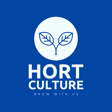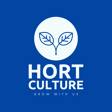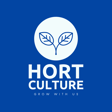
Hands in the Dirt, Data in the Cloud
In this reflective episode, Brett and Ray take a deep dive into how Kentucky agriculture—and Extension work—has transformed over the past few decades. Starting with a lighthearted chat about summer, fall cravings, and the buzz (and hype) around AI, the conversation shifts into a second chapter of Ray’s career story, following the earlier “Hands in the Dirt, Head in the Clouds” episode.
Ray shares first-hand memories from his early days in Extension in the mid-1990s, when answering a client’s question meant sifting through filing cabinets, making long phone calls, and sometimes hauling around a Motorola “bag phone.” The discussion traces how technology, from networked computers to AgDiscs and eventually the internet, changed how agents work and how clients access information.
A major focus is the seismic impact of the 1998 Master Settlement Agreement and the 2004 end of the tobacco quota system—events that reshaped Kentucky farming and spurred a search for alternative crops and markets. Ray and Brett explore both the opportunities and challenges of this transition, from diversification efforts and Kentucky Proud branding to the hard realities of marketing perishable crops.
Throughout, they connect past changes to present questions about AI’s role in Extension—its potential as a tool, its limits, and the enduring importance of research-based information and human expertise. The episode blends history, personal experience, and forward-looking perspective on how agricultural outreach adapts to waves of technological and economic change.
Questions/Comments/Feedback/Suggestions for Topics: hortculturepodcast@gmail.com


